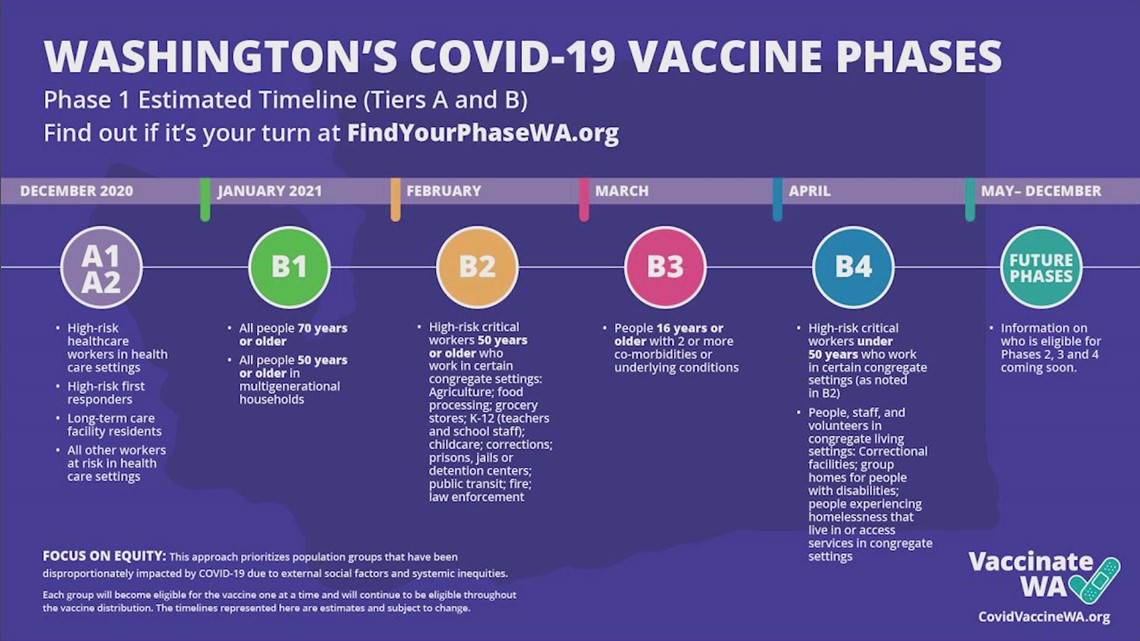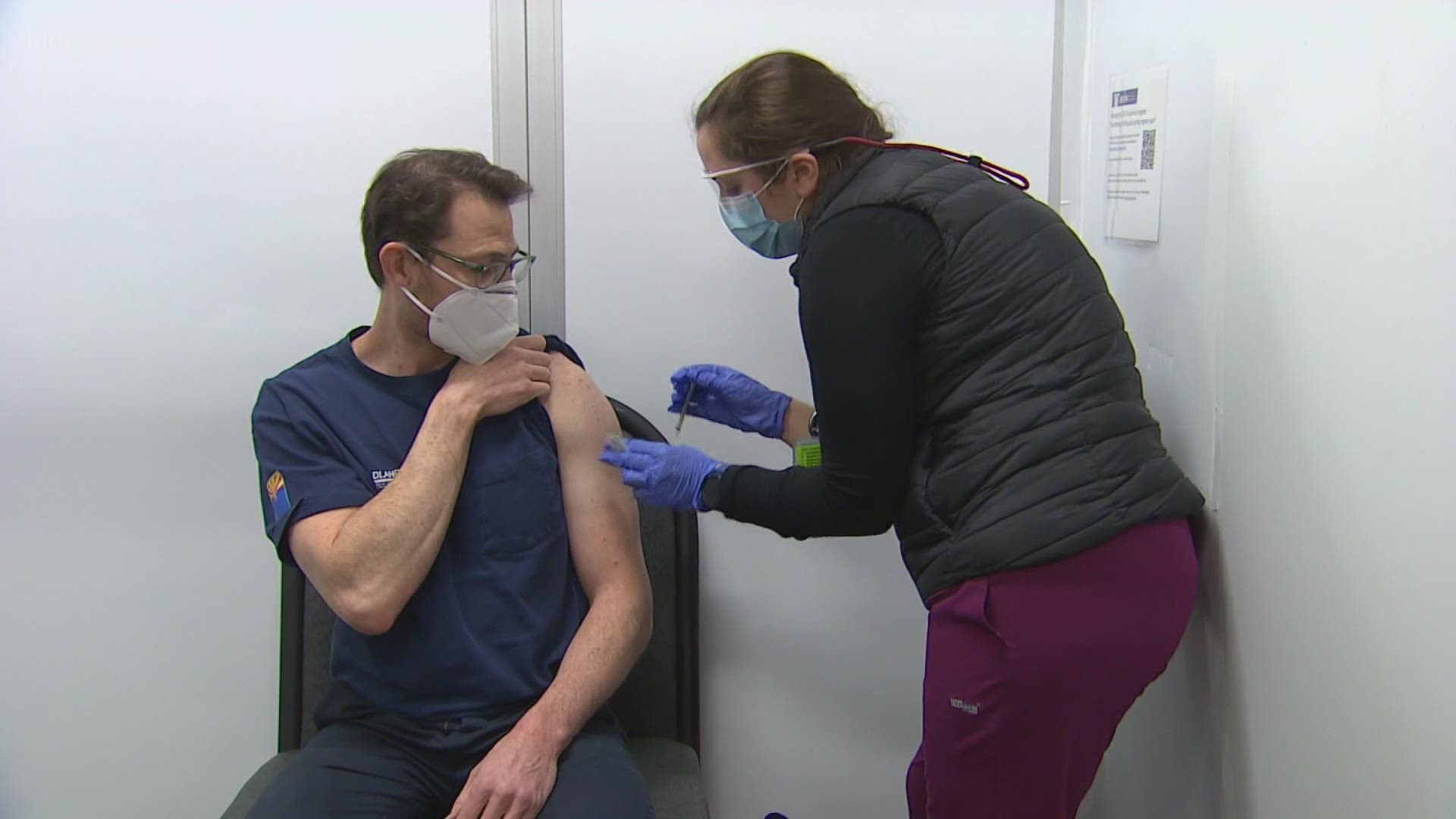You may have heard it from family and friends: they don’t want to get the COVID-19 vaccine because they’ve heard of people having a bad reaction.
But according to the CDC, the risk of an allergic reaction is astronomically low, and doctors at UW Medicine are backing that up as well.
Eric Marie is a physical therapist who works face-to-face with patients of all backgrounds.
“It’s important to get vaccinated to protect my patients as well as protect myself,” said Marie.
After the shot, a nurse at UW Medicine's Northwest Campus walked him to a chair, where he sat for about 15 minutes as staff watched him and others who just got their COVID-19 vaccines.
“They’re just monitoring to make sure that you’re OK, you don’t have any adverse reactions,” he said.
Adverse reactions aren’t common at all, according to a recent study by the CDC.
In a study of the Pfizer vaccine given between Dec. 14 and 23, out of 1,893,360 doses, there were 4,393 adverse reactions or 0.02%. The reactions included skin rash and itchy throat.
Only 21 people in the group suffered severe reactions, including anaphylactic allergic reactions. All of those people recovered.
Doctors with UW said we do not need to worry about an allergic reaction.
“I would put it this way, we take medications every day that our physicians prescribe for us and they have a much greater reaction than the COVID-19 vaccine,” said Dr. Doug Paauw, UW Doctor of Internal Medicine. “A lot of patients ask, ‘Well I’ve had some allergies to this and that, I really should not take this.’ And that is not the case.”
Even people with allergies to medications shouldn’t be concerned, according to Paauw.
“Short of a reaction to polyethylene glycol, which is one of the carriers in it and a known proven allergy to that, that’s really the only thing that would give somebody a reason to withhold the vaccine,” he said.
To put it plainly, Paauw said, you’re much more likely to die of COVID-19 than of having a severe reaction to the COVID-19 vaccine.
“The chance of you having an anaphylactic reaction with a new vaccine is one in 100,000 to 200,000, which is current as of today’s estimate on this," said Paauw. "The chance of you dying of COVID-19 in the United States is one in 1,000, if you look at total population. Which do you want? Most people are going to go, ‘I don’t like the one in 1,000 chance of dying.'”
“What’s the worst that can happen with COVID? What’s the worst with the vaccine? The vaccine is fairly harmless, I mean, it is minuscule. The side effects that have happened are almost none compared to COVID,” said Marie.
Even with the low number of severe allergic reactions, the CDC still recommends places giving COVID vaccines to have medication on hand to treat anaphylactic reactions.



